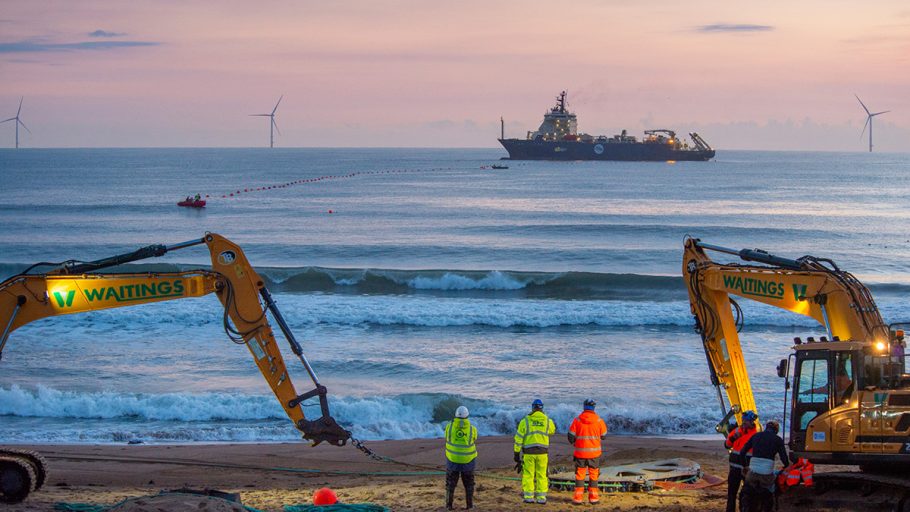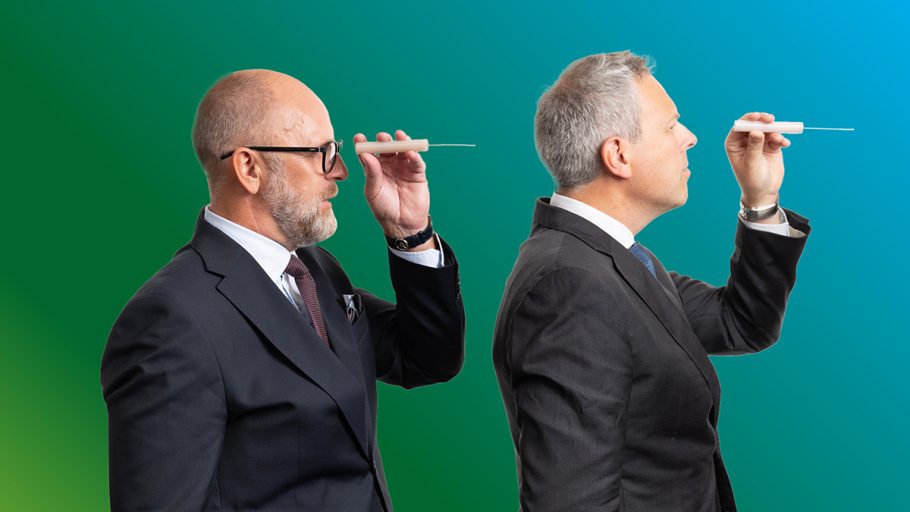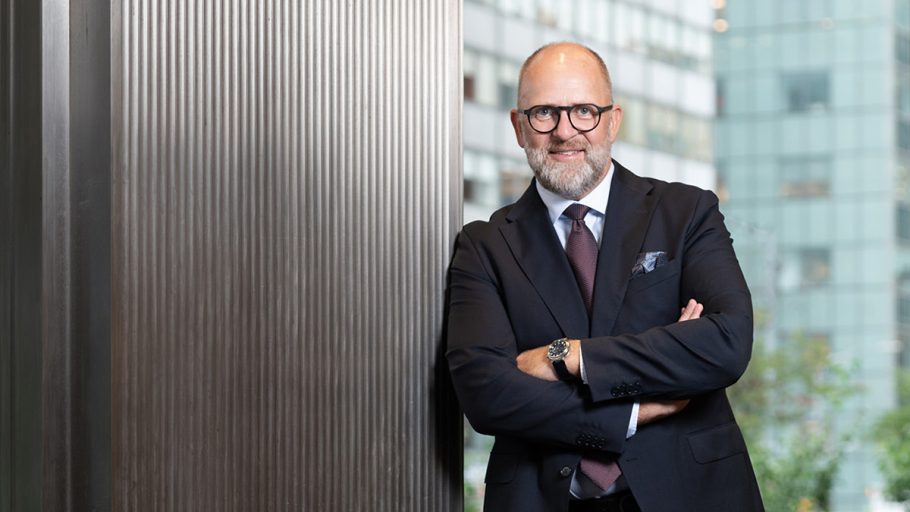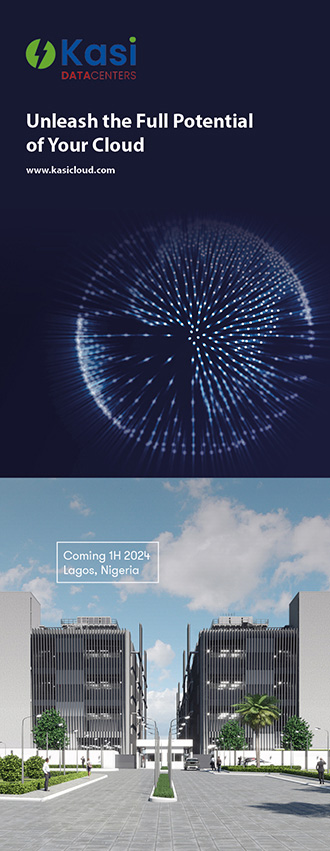Peder Nærbø is the Founder and Executive Chair of Bulk Infrastructure. Since starting Bulk in 2006, he and the company have been focused on bringing more sustainable builds and operations to society at the intersection of real estate and digital infrastructure, building a more sustainable future. In 2011, he expanded the company from logistics and industrial real estate into digital infrastructure.
Peder has been focused on unlocking the Renewable Energy Giants of the World (Nordics and Atlantic-Canada) to enable sustainable digital infrastructure as his top priority. He belives that long-term positive impact to the environment can be achieved when Sustainability does not compromise with Profitability for customers.
Can you share a pivotal moment from your early life that significantly influenced your professional journey and led you toward establishing Bulk Infrastructure?
I think that pivotal moment was when I was on my way to work as a financial advisor in the early 2005 and I heard the first report of Oslo’s air quality measurements. I was shocked to find out that Norway had the most polluted capital city during winter in the whole of Europe—and we’re sitting in a fjord surrounded with mountains! So, I sat there, in congestion downtown, I started thinking about how I could make an impact. There was a lot of talk at the time about how the government would be shaping home heating and such going forward, both in incentives and restrictions, but nobody was talking about the huge logistics hub in downtown Oslo (where trains and goods and services were coming in) and how we’d need to move that out of the city in order to become more efficient. Through my financial advisory work, I had invested some money with my clients into logistic projects. So, I knew something about logistics real estate. And that’s when I decided to start Bulk, to move logistics outside Oslo city center.
You can also say there was a second pivotal experience I had in Bulk’s early days. In the first five years, we were very successful, because we hit a nerve with logistics companies who wanted to move out of the city and have more modern facilities with more capacity. Then we started getting calls from companies wanting to look at our land for data centers. I had no clue what a data center even was at the time (back in probably 2010). Over the next few years, we got more of these calls. Often they didn’t even say who they were representing or what specifically they were looking for. They just had a lot of questions. I showed them everything I had, but I definitely didn’t have it.
So, I started studying the the data center industry, and I was shocked to find out that they were already hitting the same amount of CO2 emissions as the airline industry. Whether that was a precise figure or not, I saw an opportunity for us as an industrial real estate developer to be the one to bring data centers to Norway and utilize Norway’s unique scalability on renewable energy. Almost 100 percent of our land power is produced by hydroelectric and wind farms.
Who has been your biggest inspiration or mentor throughout your career, and in what ways have they shaped your approach to leadership?
I would say it’s not one person—it’s multiple people. And they have one thing in common: They’re all ship owners. I started my career in shipping, ocean freight transport, and I was working for various ship owners. I was also a shipbroker for a while. I saw how these companies were usually run by the head of a family and they were all very sturdy and consistent in their strategies. But the most important thing, and the one that really stuck with me, is how they were always looking ahead to the next thing and would be able to position themselves for big commodity trends. If they could time it just right, they could all of a sudden make more money in one year than they would do for the for the past six years. So, the best ship owners would position themselves to be able to scale up their capacity when necessary, and they knew how to ride the seven year cycle wave. This approach informed how I went into Bulk.

Can you recall a failure or setback in your career that provided valuable lessons and contributed to your current success?
One of the first projects we developed when we started building logistics outside Oslo, was e-commerce. In 2007 or 2008, we signed an agreement to buy a building based on another lease contract that we could sign the day after with an e-commerce company. And that was how I learned that they were too early on the curve.
While e-commerce is still shaping the logistic market and where we place those buildings, I learned through that contract that I needed to look more closely at my customer and determine if I believed whatever trend they were trying to sell would be strong enough in the market and if they could actually survive as an e-commerce business. The business in question went bankrupt the day after I took over the building, and they never moved in. At that point, we had already started tweaking the buildings to their needs. So, that was a hard lesson to learn.
But the more important takeaway I learned from this is that we always paid the bank—bills have to be paid every time, all the time, and we didn’t fail the banks. So, even though it took years for us to get positive cashflow, we were able to maintain a good relationship with the number one bank, which felt hugely important when we were depending on the banks to support us as a developer in those early stages.
What advice would you give to other entrepreneurs or businesses who aspire to integrate sustainable practices into their operations?
I think there’s no time to lose: If you’re not part of the sustainable shift in your market, whatever you do, you need to shift now. Future investors will compare companies, and sustainable operations are a big part of what they’re looking for. In Europe, we’ve already started reporting our annual emissions, and that reporting will become better and more detailed over time. If you wait much longer to engage with sustainability, it will likely be too late to embed yourself into the market. Don’t just aim for surface-level sugarcoating, though. You need to invest in sustainable practices that will actually last and actually make a difference.
As an individual leading a company focused on sustainability, how do you incorporate green living principles into your personal life?
It can be hard to do on a daily basis but I try to look at how I can offset carbon on flights or in daily driving. I also try to teach my children and my family about recycling and how we care for the nature around us.
Sustainability is first of all about making the right choices. Our day-to-day choices will influence the environmental impact of our actions.But the number one thing I do is not to invest outside of a sustainability strategy. I want to support people in finding ways to create more sustainable products and practices. In my company, we say sustainability is our business. Industrial real estate is where we started our shift, and we will continue to look for ways there, in our data centers, in our fiber optic cables, and in new businesses to unlock more sustainability.

Can you share a personal achievement outside of your career that you’re particularly proud of?
So much of what has happened in my life has been related to my career, in a way, but one moment that stands out is when we welcomed home our third child from the hospital. At that point, we had three kids in diapers, and I told my wife that I wanted to quit my job and start my own company. We were at the start of our family and we didn’t have a lot of money, but I was able to scrape together 150,000 USD to start company.
The real achievement, though, was when my wife looked at me and said, “You do what you need to do, Peder.” Although she had extreme concerns, my wife and I have a very strong confidence in each other, and we can take those big steps and make those big decisions together. I’m really proud of that moment.
If you were to start Bulk Infrastructure all over again, knowing what you know now, what would you do differently?
I think I would probably try to move faster, because growing organically is such a painful journey. Yes, it’s rewarding, and because we have built second-to-none scalability, we still have a large advantage compared to most competitors. However it was painful to patiently look at competitors getting business while we were building a scale solution for the data center industry to come to Norway. Maybe I should have taken it more in increments.
While we’re on the subject of scale, the site that we have in southern Norway can grow potentially to a 2GW clean, renewable energy data center campus. There is nowhere else you can do that in the Nordics.. And I think, if I were to do it again, I would probably try to get international partners on board quicker just to move earlier. All in, I don’t think it would have made a big difference, though. I think one of the problems for entrepreneurs or founders is that you risk going too early to the market, which can deviate your original plans. I financed the data center aspect of the business through the success of my industrial real estate business. If I had co-investors from an earlier stage, they would possibly become very impatient, which could very quickly get you off track and start pushing you in a direction you don’t really want to go. Although I’m an extremely stubborn person, I would probably be influenced by hypothetical early co-investors to do things differently—and I’m not sure they could see “the why”and rather look for quick profits. But I do think I have some very strong partners with me on the financial side now, and it’s encouraging that we are all looking at Bulk’s journey in the same way.



